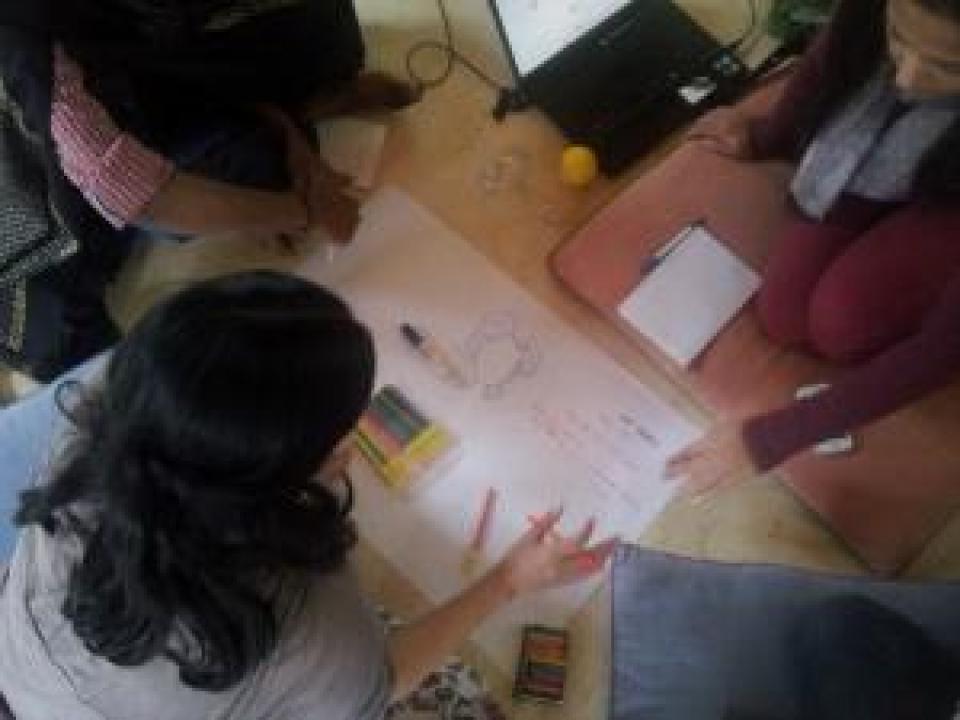
It’s been a great month for cyber-feminism. The #FBrape campaign succeeded in changing the social network giant’s policies on violence against women in record time. The global alarm over the NSA surveillance scandal created mass awareness over privacy and access to personal data. And Instagram launched hipster filters for videos. Perhaps not as breakthrough, but definitely encouraging of more targeted filming and documentation.
In its first phase, EROTICS generated a unique body of knowledge about the negotiations and navigations of internet regulation around sexuality content in five different countries. The case studies looked at usage, access, activism, identity and other fascinating components that highlight our relationship with cyberspace as sexual rights activists. As we move into the next phase, EROTICS II, the team is hoping to build on the learning to advance global mechanisms of support that amplify that work that different groups and networks are taking on locally.
In this GenderIT.org issue, we look at some of the preliminary results from APC’s global survey on usage, risks, and navigation of internet regulation by sexual rights activists. As expected, the survey has validated a lot of the conversations on internet security we have been having with activists for years. The risks and violations are nothing new, they are just more clearly articulated and documented now. You can check out the summary here. What caught my eye is one piece of information in relation to the proactive work undertaken by activists to have campaigned in response to internet regulation:
The younger the respondent, the more likely they are to have campaigned: 34% among those younger than 30 years old; 24% for the 30-39 interval; 17% for those 40 and older.
Terrific. A third of young sexual rights activists around the world resort to campaigning against internet regulation policies or restrictive actions from the government, ISPs, private internet companies, social networks, and anonymous hackers. Given that the excuse most widely used by oppressive agencies to justify internet regulation is “protection” of children, of young people, of morals, of law and order and other public domains under the threat of an open internet, counter-campaigning produces discourse and momentum that supports young people’s agency in navigating the content that may actually be harmful online. Working with taboo and often personal subjects of sexuality, that young people are organizing more collaboratively online gives way to more awareness, more action, and more success in countering filtering and regulation.
Why the youth are more likely to have campaigned is directly linked to the more advanced computing skills of Generation Y. The equation becomes simple: the better you can use the internet, the better you can respond to regulation. You are more likely to be outraged by violations of internet freedom. You are more likely to feel enabled to do something about it – not just through individual responses (check these other tactics in the survey results) but in collective action through campaigning. It is collective online action that not only influences policy, but also shares with constituencies the tools and the empowerment to push for online freedoms.
In this edition of GenderIT.org, we have published a number of pieces that highlight these topics in different contexts. Kamilia Manaf and Ni Loh Gusti Madewanti talk about the context of sexuality discourse in Indonesia and the blocking of LGBT content under the excuse of moral propriety. Richa Kaul Padte describes content regulation in India related to pornography and social networking, under the similar justification of “purity.” We have published a piece in this edition that focus on activism in India by Bishakha Datta. Jennifer Radloff looks at the risks of activism online, looking at the intersection between sexual violence online and offline, ending with important tips on how to protect your privacy online.
In the light of continuous struggle to keep sexuality content on the internet open and safe – we must keep having these conversations across continents. More power to the cyber-activists!
—-end—-
- 27891 views







Add new comment